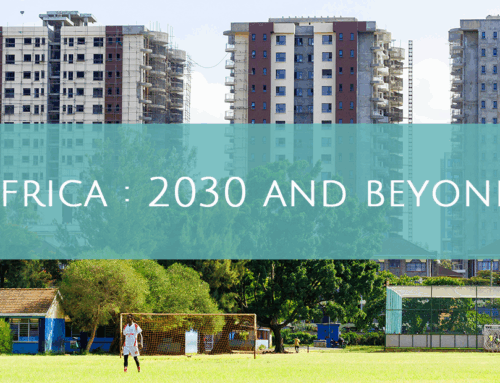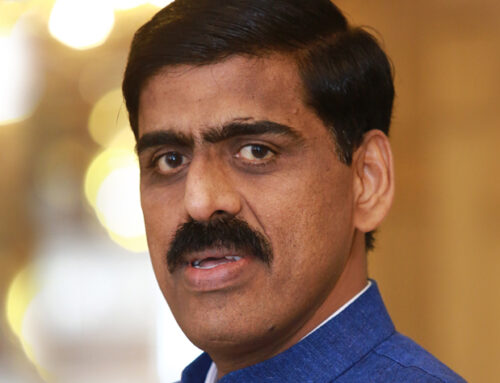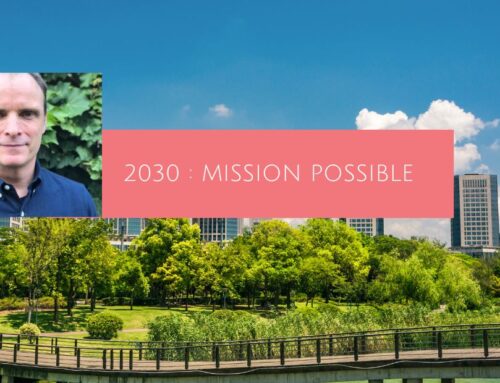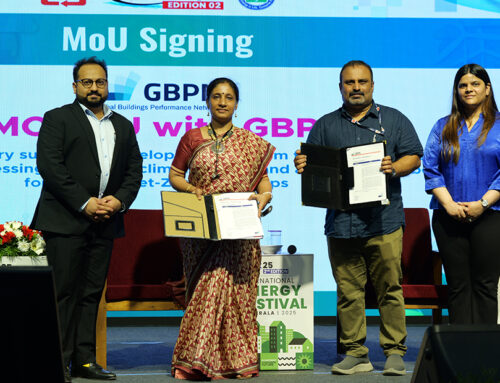Inclusion and Frontline Communities are among the cross-cutting themes for COP28 to be held this year. This is commendable as it is the frontline communities, the most vulnerable sections that are disproportionately affected by climate change.
For countries like India that are in the direct line of fire of climate crisis, the problem is compounded by the unprecedented urbanization, says Ashok Lall, principal Ashok B Lall Architects and GBPN local expert.
“India is urbanizing rapidly. We could say that it is the largest national transformation of the 21st century – the scale is enormous,” Mr Lall said.
“We are also seeing the effects of climate change all around us in some way or the other. The environmental quality of our surroundings is deteriorating and the environmental security is at risk. It is the urban poor who suffer the most and are in need of adequate shelter”.

Mr Lall was speaking at an event to launch recommendations that could change the lives of millions of Indians for the better. The recommendations propose standards for health, wellbeing and climate resilience in the design and construction of affordable homes and neighborhoods in urban India. The recommendations were put forward in a white paper authored by Ashok B Lall Architects (ABLA) and published by GBPN.
Poorly designed buildings can lead to health issues to the occupants, says Gautam Nagar, GBPN Senior Advisor, India.
“It is the affordable sector that gets affected the worst by the combined action of climate change and unhealthy buildings,” Mr Nagar said.
“With the National Building Code (NBC) scheduled for an update, it is an unprecedented opportunity to delve into this concept in more detail.”
Watch Ashok B Lall’s inspiring speech at the launch of the white paper in India below.
Project Team researcher with a resident of low-income housing in Gujarat

Harnessing local expertise to create implementable solutions
As highlighted in the recent global stock take, the effectiveness of adaptation action is enhanced when it is informed by local context and priorities.1 This has been a key principle in the work that GBPN does.

Maaz Dixit, Project Manager, GBPN India said this project is an important example of how local expertise is important to solutions that are implementable and feasible.
“GBPN brings the right people together to support motivated governments like India in their sustainability journey. ABLA is active in research on affordable, sustainable and low carbon housing in urban India. The Indian Institute of Public Health-Gandhinagar (IIPH-G) is India’s largest public health university working on strengthening the public health system. They brought their considerable expertise to this project,” Ms Dixit said.
“We also put the recommendations through a review committee and stakeholder consultation. This has helped us develop recommendations that are not just best-practices, but are also economical and implementable within the present administrative resources. That is a huge benefit considering the scale of the built environment that is yet to be built.”
During the 2-year research, the team conducted extensive literature reviews and visited existing affordable housing to understand how their living conditions affected their health and lives. This was supported by Monash University, Australia as the international research partner on the project.
“The extensive research helped us develop recommendations for the internal as well as external environmental quality for affordable housing in India. Incorporating such forward thinking recommendations into the building code revisions has the potential to positively impact the lives of millions of Indians while also following sustainable practices, ” Mr Nagar said.

The White Paper is part of a project ‘Healthy Affordable Homes in India”. In the next step the project will work with two affordable housing projects to integrate healthy building norms as recommended in the white paper.
Watch Mr Ashok Lall talk on how these recommendations can improve the lives of affordable housing residents here
Download the white paper here
See the project strategy brochure here
1 https://unfccc.int/documents/631857
Share This Story, Choose Your Platform!
Stay in touch with how we’re transforming the buildings sector
GBPN runs innovative building policy reform programs in key regions around the world that aim to tackle the climate emergency by decarbonising the buildings sector. Stay up to date with our newsletter.
Stay in touch with how we’re transforming the buildings sector
GBPN runs innovative building policy reform programs in key regions around the world that aim to tackle the climate emergency by decarbonising the buildings sector. Stay up to date with our newsletter.







